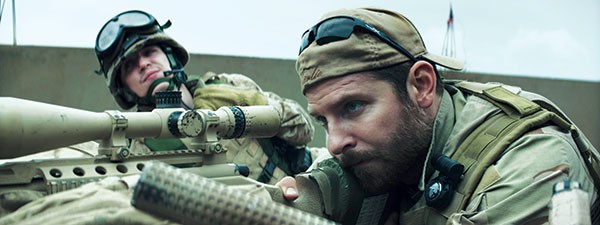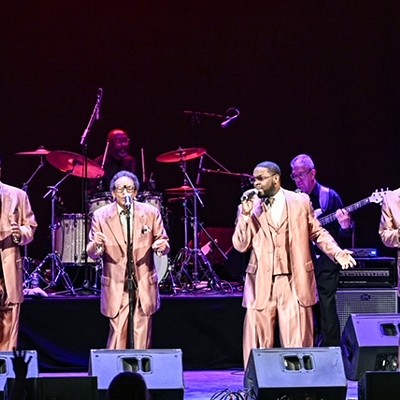Clint Eastwood's film American Sniper, about a real-life Navy SEAL sniper, Chris Kyle, who racked up more than 100 kills during the Iraq war, was always going to be polarizing. We're not done as a culture sorting out what that conflict meant, whether one supported it or not, fought or stayed home.
For the right filmmaker, American Sniper, adapted from Kyle's book, presents more than enough raw material. The myriad thorny issues range from specifics like the physical and emotional stresses placed on troops deployed and re-deployed in an ever-shifting battleground — and how a trained killer re-adapts during peacetime — to unpacking such go-to myths as honor, patriotism and masculinity.
Alas, Eastwood is not that filmmaker, delivering a work that seesaws between tense and occasionally illuminating battle scenes and poorly developed homefront scenes. Between his four tours in Iraq, Kyle (Bradley Cooper) returns home to his wife (Sienna Miller). But he keeps a clenched he-man jaw and she spouts made-for-TV lines about his growing PTSD. What's most interesting about Kyle's story is presented more than explored.
Film can be a powerful medium, but I think Sniper's darker emotional material is continually undone by existing expectations we've largely absorbed through cinema. Whatever Eastwood's intentions, it's hard not to read Kyle as a hero. He's the buff, handsome dude in an action-film scenario, shooting the enemy and his (literally) black-hatted match, an ace Syrian sniper working for the Iraqi side. And because we consume epic amounts of no-consequence shooting in popular film — just think of Eastwood's own iconic, beloved casual shooters in his spaghetti Westerns and Dirty Harry films — it's harder for viewers to relate to what might have been Kyle's growing discomfort with killing.
Perhaps most curiously, Eastwood gave short shrift to the two aspects of Kyle's story that were unexpected and more unique. His eventual acknowledgement of PTSD and subsequent work with other vets is tacked on like a mere afterthought. (When Kyle is helping vets with target-shooting, one fellow says after hitting the bull's-eye: "I feel like I got my balls back." Here's a film that isn't about to parse the relationship between masculinity and guns.)
Then, there's Kyle's untimely death — also gun-related — which occurs off-screen, and raises awkward questions of how we choose to depict such acts in entertainment: Some kills are "good" and can be shown in blood-splattering glory, while others are "tragic" and deserve discretion? The on-screen notice of the death is followed by valorizing footage of Kyle's real-life cortege and burial rites. It's an audience-pleasing end to a troubling story, but another aggravating example of how many opportunities for a more thoughtful work have been squandered here.















